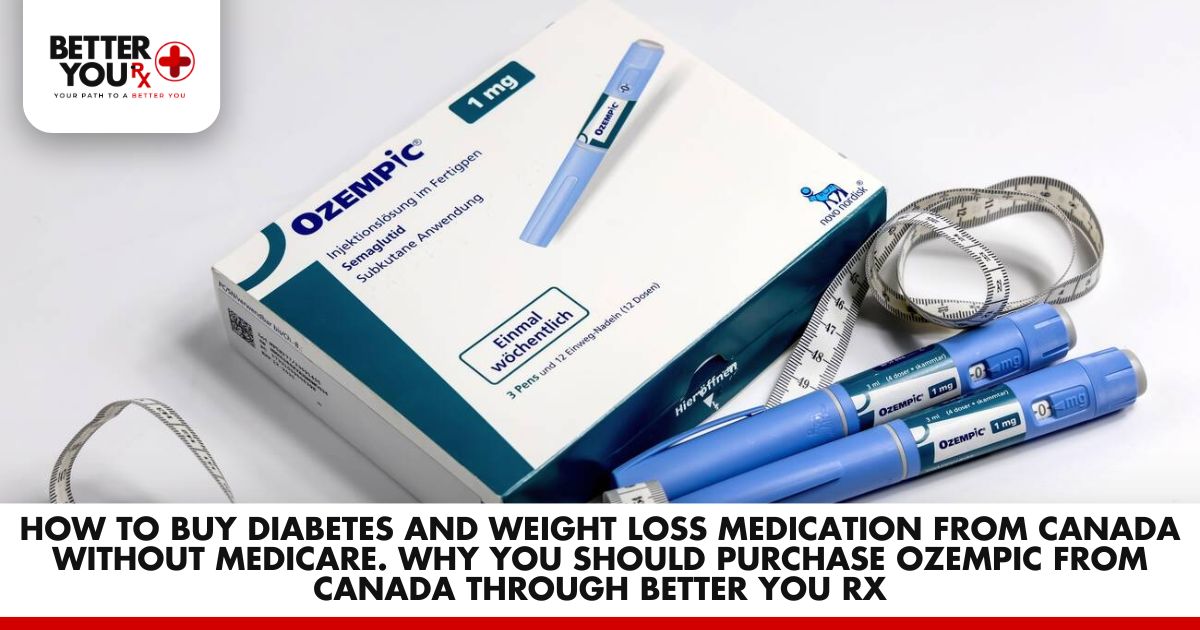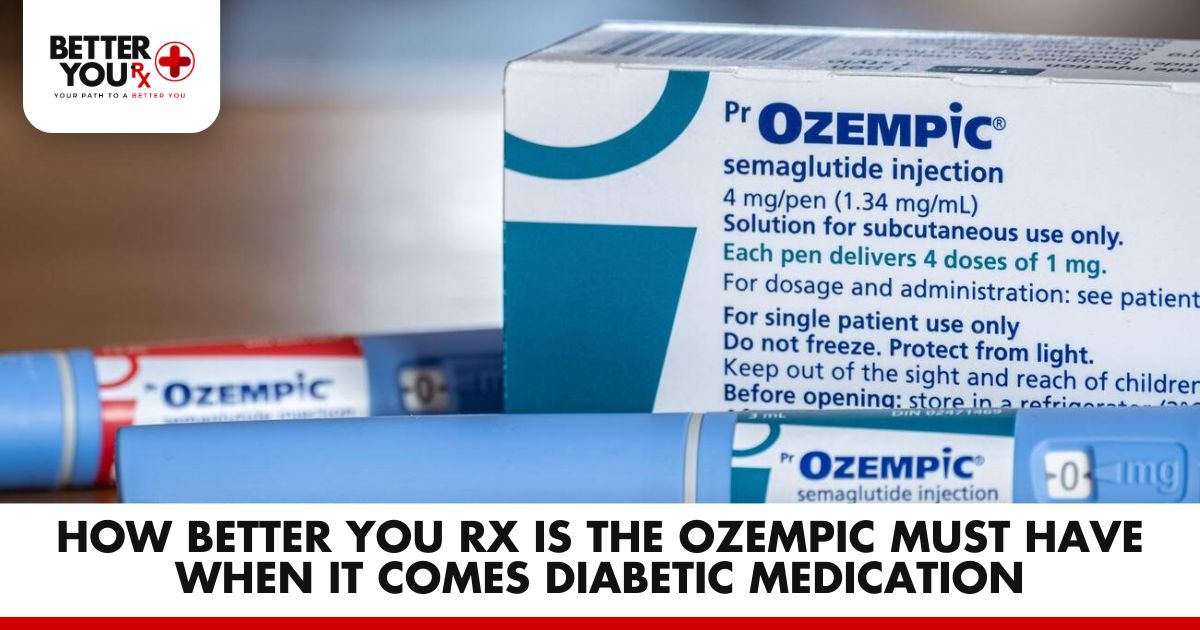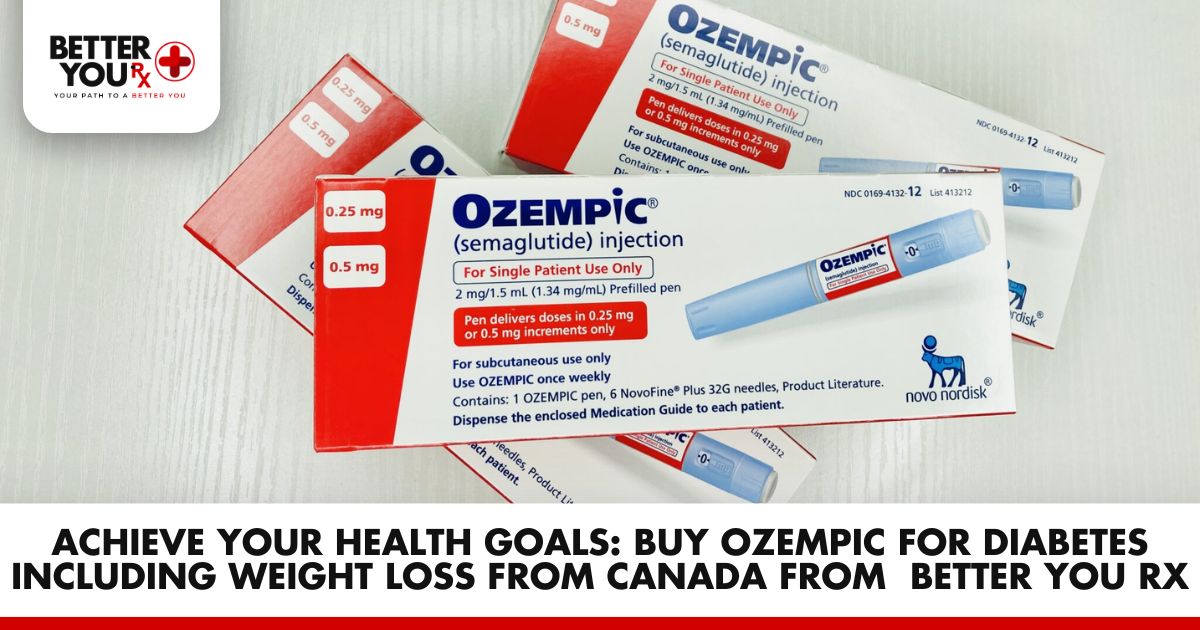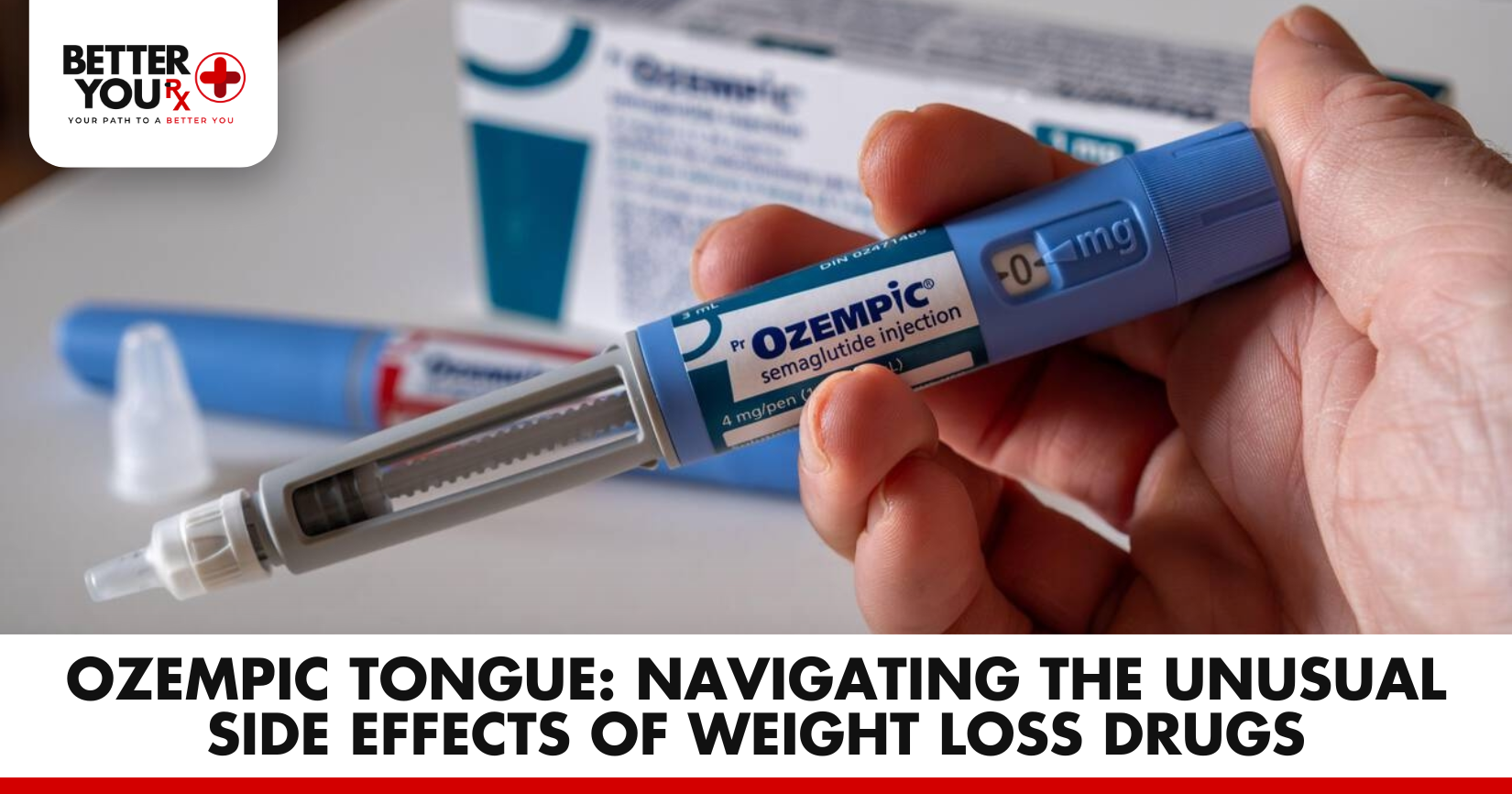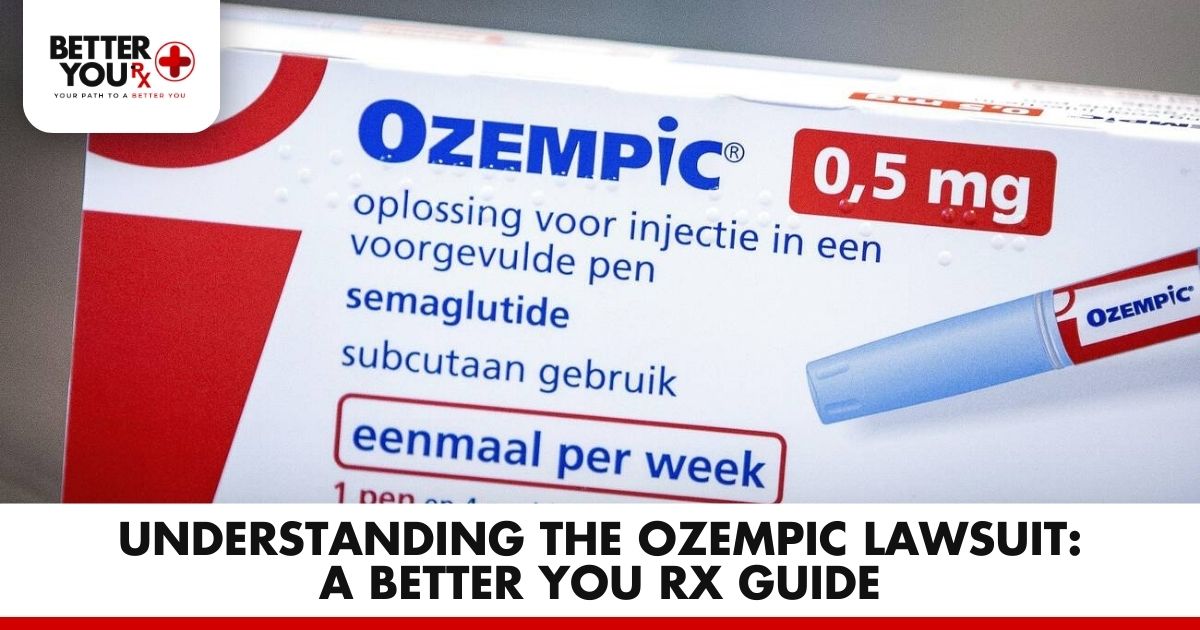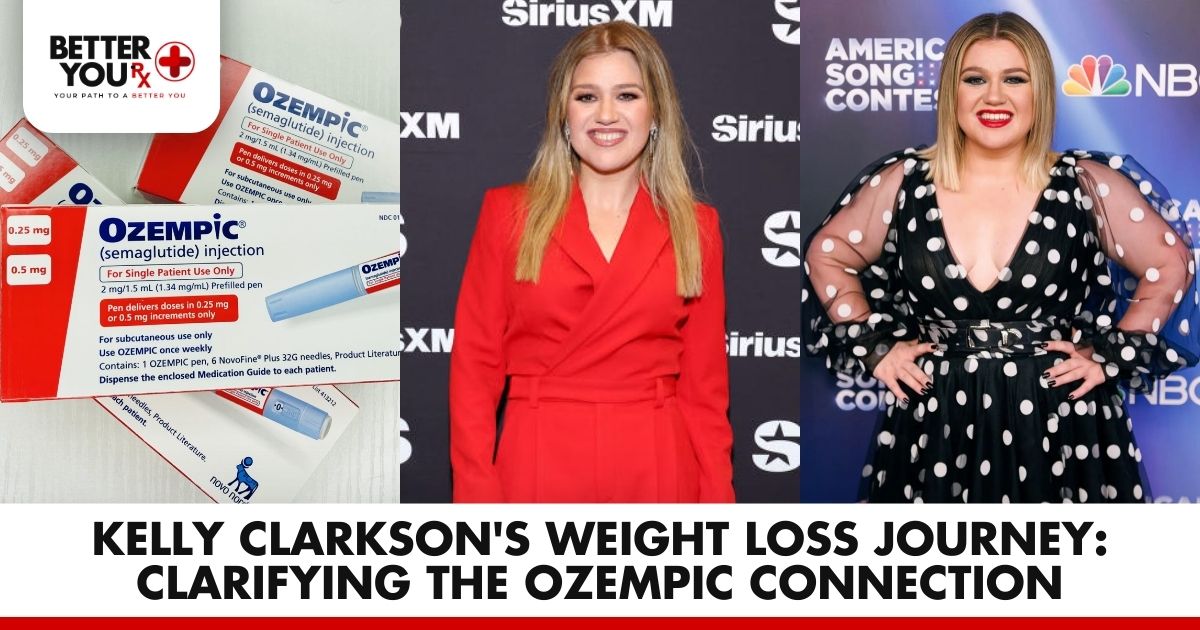Welcome to Better You RX, where your journey toward a healthier self is our mission. In our ongoing effort to illuminate the path of medication management and its effects, we delve into the world of Ozempic, a medication many turn to for help managing type 2 diabetes and weight loss. Yet, like any journey worth taking, understanding the potential side effects is crucial to ensuring a smoother ride. Among these, dry mouth and taste changes are noteworthy for their impact on daily living and overall satisfaction with treatment. Let’s explore these phenomena and shed some light on their origins.
The Unusual Culprit: Taste Changes with Ozempic
Ozempic’s reputation for influencing weight management and glucose levels in type 2 diabetes is well-documented. However, nestled within its list of side effects is a curious condition: dysgeusia, or, simply put, a change in taste perception. It’s an effect that more than 0.4% of Ozempic users might encounter, though the full spectrum of its occurrence might be understated.
The Spectrum of Dysgeusia
Imagine your morning coffee betraying you with an uncharacteristically bitter taste, or your favorite salad turning unexpectedly salty. Some users report even more peculiar changes, such as:
- A persistent metallic taste during meals
- A distortion in food flavors, rendering them “weird” or off-putting
- An unpleasant sulfur smell or taste accompanying food items
- Shifts in taste preferences, with previously enjoyed dishes becoming less desirable and vice versa
For some, these taste alterations mirror the disconcerting taste disturbances experienced during a COVID-19 infection, adding a layer of intrigue to Ozempic’s effects.
A Double-Edged Sword: Impact on Weight Management
There’s an interesting twist in this tale. While some individuals experience distress over these unexpected changes, others find that the shift in taste preferences inadvertently aids their weight loss efforts. The sudden aversion to previously loved foods could, in theory, contribute to a reduced calorie intake—an ironic benefit for a medication aimed at helping with weight management.
Dry Mouth and Ozempic: Shedding Light on the Thirst
Aiding the oddity of taste changes, some Ozempic users find themselves grappling with dry mouth, a side effect that not only discomforts but might also exacerbate the taste disturbances further.
-
The Interconnected Journey of Taste and Hydration
Dry mouth, scientifically known as xerostomia, isn’t merely about the need to reach for a glass of water more often. It’s a condition that can influence your food’s flavor profile and overall eating experience, dovetailing with the issue of dysgeusia and complicating the culinary exploration for those in Ozempic.
Unraveling the Mystery: Why Do These Changes Occur?
While it’s understood that Ozempic can usher in these side effects, the question of “why” remains a subject of scientific curiosity. The prevailing theories suggest a fascinating interplay between medication and biology.
-
Genetic Alterations and the Tongue’s Tapestry
Recent insights, like those from Arnold in 2017, propose that Ozempic might alter the gene expression along the tissues of the tongue, which could, in turn, disrupt normal taste perception. While offering a window into the complexity of human biology, this theory highlights the need for further research to comprehend this phenomenon fully.
-
Studies and Observations: A Glimpse into the Effects
Contradicting perceptions emerge from the scientific community, with some studies indicating no significant difference in taste disturbances between Ozempic and placebos. Yet, other research paints a different picture, suggesting that semaglutide, the active component in Ozempic, might enhance taste sensitivity across the four basic tastes: sweet, sour, salt, and bitter.
Beyond Taste and Thirst: A Broader Perspective on Side Effects
While taste changes and dry mouth draw attention to their impact on everyday life, it’s essential to consider the broader spectrum of Ozempic’s side effects. Gastrointestinal issues such as nausea, vomiting, and constipation are among the more commonly reported, tending to resolve as the body adjusts over time.
Embracing the Journey with Better You RX
Facing the waves of change brought on by medications like Ozempic can feel daunting, but you’re not navigating these waters alone. At Better You RX, we’re committed to being your lighthouse and guiding you through the complexities of medication management with information, support, and compassion.
-
Open Dialogue and Personalized Care
Our dedication to your health journey encourages an open dialogue with healthcare providers. Your experiences, concerns, and successes are paramount to customizing a treatment plan that respects your needs and goals.
-
The Promise of Better You RX
As we continue to explore and understand the intricacies of Ozempic and other medications, our promise remains steadfast: to empower you with knowledge, support you with empathy, and guide you toward a healthier, better you.
Better You RX ensures your journey is informed, supported, and celebrated in a constantly evolving landscape. Join us as we uncover the mysteries of medication together, turning challenges into stepping stones for a healthier tomorrow.

